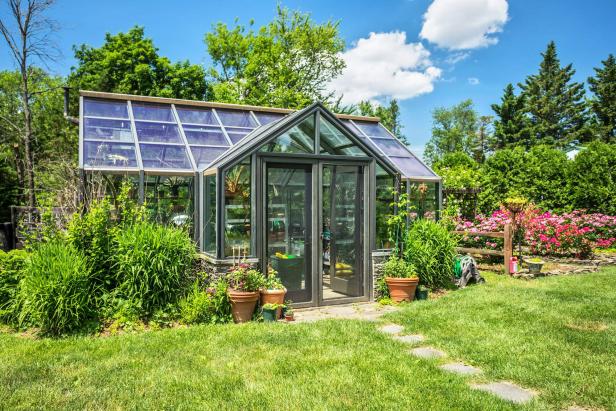Greenhouse Farming: Taking Full Advantage Of Plant Yields and Sustainability
Are you aiming to optimize your crop yields while advertising sustainability? Look no more than greenhouse farming. With controlled atmospheres and reduced water usage, greenhouse farming supplies the ideal option for year-round production of fresh fruit and vegetables. By using the power of technology and sustainable practices, you can make sure an abundant harvest while decreasing your environmental impact. Discover the benefits of greenhouse farming and start reaping the advantages today!
Benefits of Greenhouse Farming
Are you questioning what makes greenhouse farming so helpful? One of the significant advantages of greenhouse farming is the ability to control the atmosphere in which plants are expanded.
An additional benefit of greenhouse farming is the reduction in water use. Greenhouses are designed to be water-efficient, with systems that reuse and record water, minimizing waste. This is specifically crucial in areas where water scarcity is a concern. By utilizing water a lot more successfully, greenhouse farming assists to save this priceless resource.
Furthermore, greenhouse farming permits for much better pest and disease management. With the controlled environment, it is much easier to prevent and manage the spread of bugs and diseases. This lowers the need for dangerous pesticides, making greenhouse-grown plants safer and extra eco-friendly.
Moreover, greenhouse farming offers security against extreme weather condition occasions. Plants grown in greenhouses are protected from hefty rainfall, strong winds, and hailstorms, which can harm or damage exterior plants. Monarch Greenhouse Utah. This security guarantees a more stable and trusted crop return, even during uncertain weather

Optimizing Plant Yields With Regulated Settings
To make the most of crop yields in greenhouse farming, you can attain optimal outcomes by controlling the atmosphere. One of the vital benefits of greenhouse farming is the capability to regulate these environmental factors, enabling you to customize them to the details demands of each plant. By carrying out these regulated atmospheres, you can take full advantage of crop yields and accomplish constant, high-quality produce throughout the year.
Promoting Sustainability With Greenhouse Farming
Optimize sustainability in greenhouse farming by carrying out effective source monitoring strategies. One key facet of promoting sustainability is the administration of water usage. By carrying out systems such as drip watering and recirculation, you can dramatically decrease water waste and make certain that every decline matters. Furthermore, using natural and eco-friendly materials for parasite control and fertilizing can help reduce ecological effect. Integrated Bug Administration (IPM) techniques, as an example, involve the usage of valuable insects to regulate insects, decreasing the demand for hazardous pesticides. Energy consumption can be lowered by using renewable power sources, such as solar panels, to power greenhouse procedures. This not only reduces dependence on fossil gas yet also decreases greenhouse gas exhausts. Proper waste management is one more important aspect in promoting sustainability. Carrying out recycling and composting systems can reduce the quantity of waste sent to landfills while likewise giving nutrient-rich garden compost for plant growth. Integrating lasting methods in greenhouse style, such as making use of energy-efficient products and optimizing natural illumination, can better enhance sustainability. By embracing these source administration techniques, you can contribute to a much more sustainable future in greenhouse farming.
Lowering Water Use in Greenhouse Farming
By implementing efficient water monitoring techniques, you can significantly minimize water usage in greenhouse farming. In addition, monitoring and managing the moisture levels inside the greenhouse can protect against unnecessary water loss. By adopting these water-saving methods, you can reduce water waste, preserve sources, and create a more sustainable future for greenhouse farming.
Year-Round Manufacturing of Fresh Generate in Greenhouses
Greenhouses give a regulated setting that Monarch Greenhouse construction Utah permits you to expand plants no matter of the external weather problems. Greenhouses can be furnished with heating and cooling down systems to preserve ideal temperature levels for various plants. By carrying out these techniques, you can optimize the performance of your greenhouse and appreciate a consistent supply of fresh create all year long.

Conclusion
In verdict, greenhouse farming provides various advantages for taking full advantage of plant returns and advertising sustainability. In addition, greenhouse farming allows for lowered water use, making it an environmentally friendly option.
One of the major benefits of greenhouse farming is the ability to regulate the atmosphere in which crops are expanded.To optimize crop returns in greenhouse farming, you can attain optimum results by controlling the atmosphere. One of the crucial advantages of greenhouse farming is the capability to control these environmental elements, allowing you to customize them to the specific demands of each crop.By executing reliable water monitoring strategies, you can dramatically decrease water usage in greenhouse farming.In final thought, greenhouse farming provides countless benefits for optimizing plant returns and promoting sustainability.